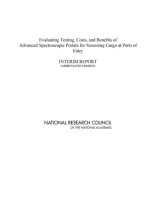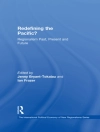To improve screening of containerized cargo for nuclear and radiological material that might be entering the United States, the Department of Homeland Security (DHS) is seeking to deploy new radiation detectors, called advanced spectroscopic portals (ASPs). The ASPs are intended to replace some or all of the current system of radiation portal monitors (called PVT RPMs) used in conjunction with handheld radioisotope identifiers (RIIDs) to detect and identify radioactive material in cargo. The U.S. Congress required the Secretary of Homeland Security to certify that ASPs will provide a ‘significant increase in operational effectiveness’ over continued use of the existing screening devices before DHS can proceed with full-scale procurement of ASPs for deployment. Congress also directed DHS to request this National Research Council study to advise the Secretary of Homeland Security about testing, analysis, costs, and benefits of the ASPs prior to the certification decision. This interim report is based on testing done before 2008; on plans for, observations of, and preliminary results from tests done in 2008; and on the agency’s draft cost-benefit analysis as of October 2008. The book provides advice on how DHS’ Domestic Nuclear Detection Office (DNDO) can complete and make more rigorous its ASP evaluation for the Secretary and the nation.
Committee on Advanced Spectroscopic Portals & Division on Earth and Life Studies
Evaluating Testing, Costs, and Benefits of Advanced Spectroscopic Portals for Screening Cargo at Ports of Entry [EPUB ebook]
Interim Report (Abbreviated Version)
Evaluating Testing, Costs, and Benefits of Advanced Spectroscopic Portals for Screening Cargo at Ports of Entry [EPUB ebook]
Interim Report (Abbreviated Version)
购买此电子书可免费获赠一本!
语言 英语 ● 格式 EPUB ● 网页 90 ● ISBN 9780309186629 ● 出版者 National Academies Press ● 发布时间 2010 ● 下载 3 时 ● 货币 EUR ● ID 7143460 ● 复制保护 Adobe DRM
需要具备DRM功能的电子书阅读器












